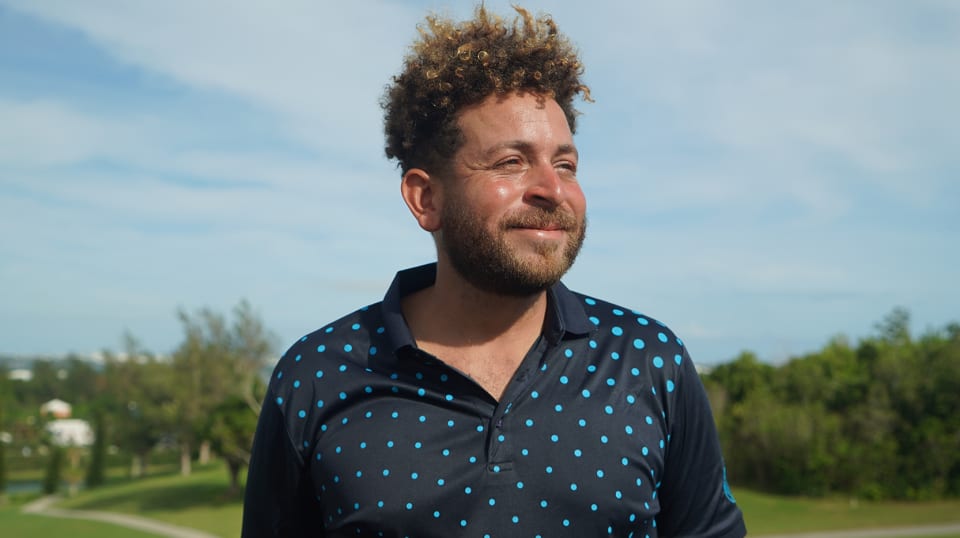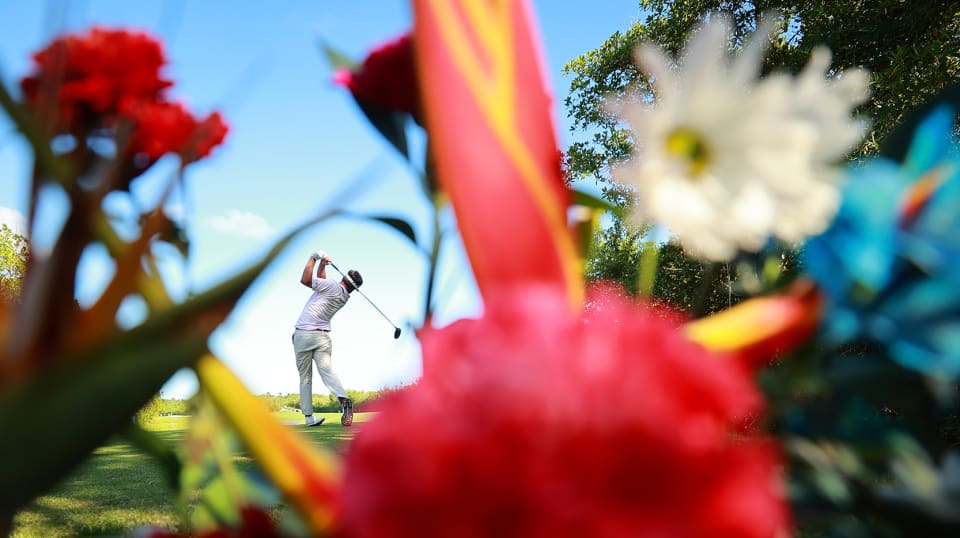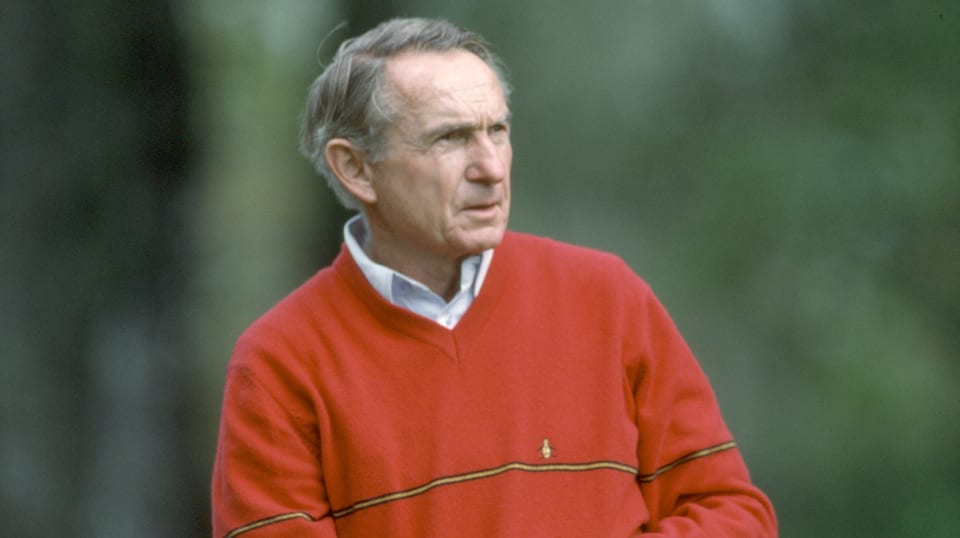
SOUTHAMPTON, Bermuda – Here was the lead in a wire-service story 53 years ago:
“Postman Eardley Jones in Warwick, Parish, Bermuda, is a father, a golfer – and more recently, a hero.”
The story detailed how Jones jumped out of his mailman’s outfit and dove into rough water on Bermuda’s south shore to save a drowning man. After medics took the man to the hospital, the story goes that Jones nonchalantly slipped back into his work clothes and continued on with his route.
“I have a picture somewhere, of my father that day standing in his skivvies,” says Nick Jones, the youngest of Eardley’s six children. It is that segment of the slideshow memory that makes him laugh.
The next slide, however, brings a somber, yet respectful reflection.
“I’ve met the man (my father) saved,” Nick says. “He’s still alive. It’s that connection that helps me remember my dad fondly. I miss him every day. He believed in me and was the driving force behind me.
“There was no shaking his faith in me.”
When Eardley Jones died at 73 in 2012, he was praised as “the Arthur Ashe of Bermuda golf,” a Black man who helped end segregation policies on this island. Until 1967, Black golfers could only play Ocean View, but Eardley Jones helped break down that barrier and open the door for Frankie Rabain, Llewelyn Tucker, Keith Pearman, and so many others.
Including, of course, Nick Jones, now 33 and beaming with pride as he prepares to play in this week’s Butterfield Bermuda Championship at Port Royal Golf Course. He earned one of three spots in a local qualifier (fellow Bermudians Michael Sims and Jarryd Dillas also got in) and embraces the opportunity before him.
“I love that I’m here,” says Nick, who followed in his father’s footsteps by winning this year’s Bermuda PGA Championship. They are the first father-son duo to win the title. “I love the chance to show what I’ve got.”
What Nick Jones has is a story that is equal parts adventure, passion, and pride, with golf being the common denominator. The game took him from Bermuda to high school in Florida. He turned pro at a young age and showed immediate promise with victory in the 2011 Daytona Beach Open, then flew to England to chase mini-tours while living with extended family.
“I can’t be in the United States for three months at a time because of visa (restrictions),” Jones, who has a British passport, says to explain why headed to England to pursue his pro dreams.
By now it’s likely you have heard of those who were stranded somewhere during the beginnings of the COVID pandemic. But Jones can likely top them all. “I was stuck in Palau for almost two years,” he says.
Palau is in the Western Pacific, part of an archipelago of hundreds of islands in the Micronesia region. Indonesia is to the south, the Philippines to the north, but Jones, whose wife’s job had moved them to Palau in late 2019, couldn’t leave once the lock-down began in the spring of 2020.
“There was a range with a big net where I could hit balls, but during lock-down they down took the net,” Jones says, laughing at the memory. “I could chip and putt, but that’s it. I didn’t touch my clubs for more than a year. I just did a lot of diving and a lot of fishing.”
When the lock-down was lifted in the fall of 2021, Jones followed his heart.
“Bermuda is home,” he says, “and it’s the golf community here that I love.”
Beyond rusty, Jones didn’t get through the local qualifier for the Butterfield Bermuda Championship in ’21. But he was so determined to be a part of the tournament that he caddied for a competitor in a Monday qualifier, then stuck around Port Royal to wash dishes at night and even tend bar.
The sense of adventure still burns for Jones, who placed fourth in the Trinidad and Tobago Open in the spring and is signed on for the upcoming Jamaica Open. But his time back in Bermuda has returned him to his roots. It’s where he learned the game, and where his father’s legacy still is rich.
“My ideal goal is to spend six to eight months here,” he says, “teaching kids and rebuilding and developing the junior program, which my father started years ago. Then spend a few months traveling to play in golf tournaments.”
He has a soft spot for Spain, has family in the U.K., and says, not surprisingly, “I love all the islands.”
His father and other Black golfers from Bermuda were trailblazers who overcame long odds. Rabaid played in the 1971 Open Championship. Eardley played in the Canadian Amateur and once brought Nick, then a young teenager, to caddie for him in the British Senior Open.
“My father didn’t have much money, but he had a big heart,” says Nick, whose father played at an elite level while juggling two jobs, as a mailman and a maître d’ at that onetime bustling hot spot in Hamilton called Forty Thieves. On top of that, Eardley Jones led the fight against segregation.
“He had to fight for his sport,” Nick adds.
That battle won, Eardley Jones then brought kids, Nick Jones prominent among them, into his junior program right here at Port Royal.
“He didn’t force me to play, but he made sure I wanted to play,” Jones says. “He gave me the freedom to fall in love with the game.”
Mission accomplished, Eardley. Mission accomplished.


